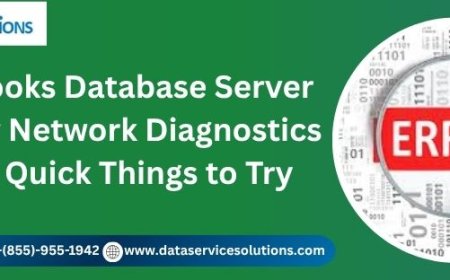Decoding Smart Systems: What Does an AI Agent Do?
Learn what AI agents really do—from sensing data to making intelligent decisions—and how they drive today’s smart technologies across industries.

In a world driven by automation, artificial intelligence has become a silent partner in everything we dowhether its booking a ride, getting personalized content, or asking a smart assistant for directions. But behind these tasks, something more sophisticated is happening. So, exactly what does an AI agent do?
AI agents arent just digital toolstheyre decision-makers. Built to perceive, think, and act, these systems serve as the core mechanism behind intelligent behavior in machines. From basic automation to complex analytics, AI agents are shaping how industries solve problems and scale solutions.
The Core Purpose of AI Agents
At their foundation, AI agents are systems designed to take in information (perception), evaluate it (reasoning), and then respond (action). This loop makes them ideal for situations where consistent, fast, and data-driven decisions are needed.
Unlike traditional software that only performs pre-coded instructions, AI agents can make judgments based on data, environment, and learned experiences. They operate under a defined goal but adapt as the context changes.
To better understand this, it's important to ask: What Does an AI Agent Do?
The Intelligence Behind the Action
An AI agents workflow typically involves four key steps:
-
Observation Using sensors, data logs, or user input.
-
Interpretation Processing the input with algorithms or trained models.
-
Decision-making Choosing the most optimal response or action.
-
Execution Performing the selected action in real time.
This continuous cycle allows AI agents to perform tasks with accuracy and adaptability.
Where Are AI Agents Used?
AI agents are no longer just part of futuristic conceptsthey're working behind the scenes in countless industries:
-
Healthcare: Monitoring vitals, managing appointments, and even supporting diagnostics.
-
E-commerce: Offering personalized product suggestions and handling real-time support.
-
Transportation: Managing autonomous driving decisions or optimizing delivery routes.
-
Finance: Detecting fraudulent activity and automating investment strategies.
Their ability to analyze patterns and predict outcomes makes them indispensable in complex and high-speed environments.
Types of AI Agents in Practice
Not all AI agents are alike. Depending on their role, they fall into different categories:
-
Simple Reflex Agents Respond to current input only (e.g., thermostat systems).
-
Model-Based Agents Maintain a limited understanding of the world (e.g., chatbots).
-
Goal-Based Agents Choose actions that fulfill specific objectives.
-
Learning Agents Improve their performance with experience.
-
Utility-Based Agents Make decisions based on maximizing benefits or outcomes.
Each type is matched with specific use cases depending on complexity, data, and decision needs.
Advantages of AI Agents
Businesses and developers integrate AI agents for several compelling reasons:
-
Efficiency: Executes repetitive tasks faster than humans.
-
Accuracy: Reduces manual errors in data processing.
-
Scalability: Manages thousands of interactions simultaneously.
-
Personalization: Delivers tailored experiences to individual users.
These benefits not only improve workflows but also enhance user satisfaction and operational transparency.
Ethical and Technical Challenges
While powerful, AI agents are not without challenges. Common concerns include:
-
Data Privacy: Sensitive data can be misused if not protected properly.
-
Algorithm Bias: Outcomes may be unfair if training data is skewed.
-
Black-Box Decisions: Its hard to trace how an AI reached a specific conclusion.
-
Overdependence: Humans may overly rely on automation, weakening oversight.
To overcome these, developers must focus on transparency, explainability, and fair data practices.
The Road Ahead for AI Agents
AI agents are expected to evolve in two major directions:
-
Greater Autonomy: Moving from following instructions to making strategic decisions.
-
Emotional Intelligence: Integrating human-like traits such as empathy and tone recognition.
Future AI agents could lead virtual classrooms, support elderly care, or manage smart citiesalways learning and adapting with each interaction.
Final Thoughts
Understanding what does an AI agent do gives us insight into how modern systems function behind the scenes. These digital agents are more than just softwaretheyre strategic thinkers that allow technologies to be responsive, scalable, and intelligent.
Whether youre building an app, launching a product, or optimizing workflows, knowing how AI agents operate equips you to make better, more informed decisions in a tech-powered future.









































